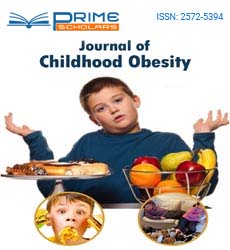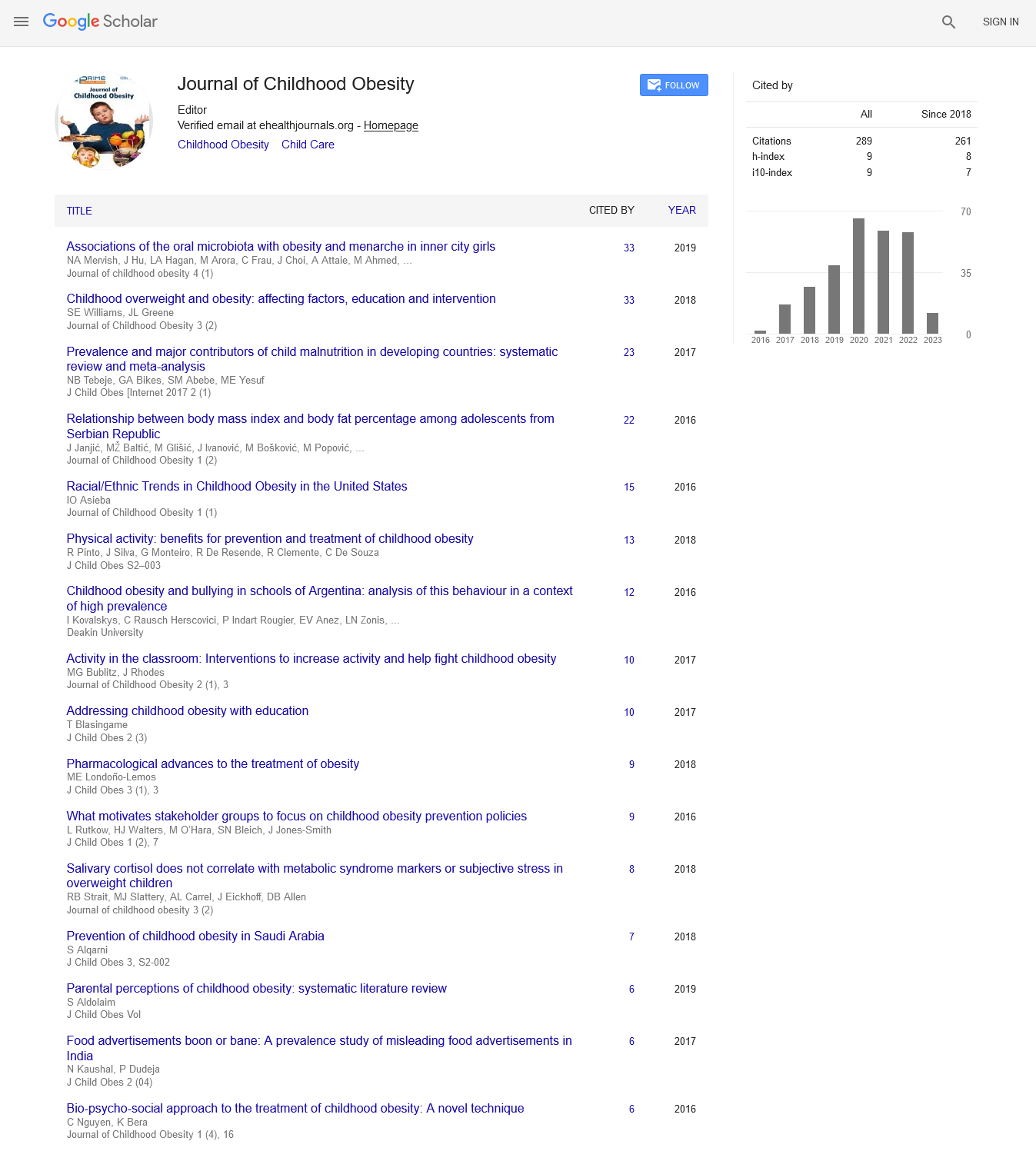Perspective - (2023) Volume 8, Issue 3
The Perilous Connection: Junk Food and Childhood Obesity
Chris Nolan*
Department of Nutrition, Teesside University, United Kingdom
*Correspondence:
Chris Nolan,
Department of Nutrition, Teesside University,
United Kingdom,
Email:
Received: 29-May-2023, Manuscript No. ipjco-23-17197;
Editor assigned: 31-May-2023, Pre QC No. ipjco-23-17197 (PQ);
Reviewed: 14-Jun-2023, QC No. ipjco-23-17197;
Revised: 19-Jun-2023, Manuscript No. ipjco-23-17197 (R);
Published:
26-Jun-2023, DOI: 10.21767/2572-5394-23.8.27
Introduction
Childhood obesity has become a global health crisis, and its
prevalence has reached alarming levels in recent years. One of
the leading contributors to this epidemic is the widespread consumption
of junk food by children. Defined as highly processed,
calorie-dense, and nutrient-poor foods, junk food has infiltrated
the diets of children worldwide, leading to devastating consequences
for their health and well-being. This article explores
the detrimental impact of junk food on childhood obesity and
highlights the urgent need for comprehensive measures to
address this pressing issue. Junk food exerts a powerful allure
on children due to its appealing taste, vibrant packaging, and
aggressive marketing strategies. These products, which include
sugary snacks, fast food, carbonated beverages, and heavily
processed items, are often designed to be addictive, making it
difficult for children to resist their charms.
Description
Moreover, the prevalence of junk food in school cafeterias,
vending machines, and local stores further exacerbates the
issue, as children are frequently exposed to these unhealthy
options. The connection between junk food and childhood
obesity is well-documented, and numerous studies have established
a clear correlation. The high calorie content and low
nutritional value of junk food lead to an imbalance between
energy intake and expenditure, resulting in weight gain. Regular
consumption of these foods not only contributes to obesity
but also increases the risk of various health issues, including
type 2 diabetes, cardiovascular disease, and hypertension. Furthermore,
junk food consumption during childhood can have
lasting effects on eating habits in adulthood. Children who
grow accustomed to a diet rich in processed foods may struggle
to adopt healthier eating patterns later in life, perpetuating
the cycle of obesity and its associated health risks. Apart from
weight gain, junk food consumption adversely affects overall
health and well-being. A diet lacking essential nutrients, such
as vitamins, minerals, and fiber, can weaken the immune system
and hinder proper growth and development. Children who
consume excessive junk food are more likely to experience fatigue,
mood swings, and difficulty concentrating, impacting
their academic performance and emotional well-being. Moreover,
excessive sugar intake, a common feature of junk food,
can lead to dental problems like cavities and gum disease, further
compromising children’s health. These health issues not
only burden the individual but also place a strain on healthcare
systems and resources. Advertising plays a significant role in
shaping children’s food preferences and consumption habits.
Junk food companies invest substantial resources in marketing
campaigns specifically targeting children, using captivating
commercials, celebrity endorsements, and eye-catching packaging
to entice their young audience. The constant exposure
to these advertisements can influence children’s food choices
and drive them towards unhealthy options. Solving the childhood
obesity crisis necessitates a comprehensive approach
that involves various stakeholders, including parents, schools,
healthcare professionals, policymakers, and the food industry.
Parental Involvement.
Conclusion
Educational programs can also focus on teaching children
about the importance of making nutritious food choices and
engaging in regular physical activity. Food Industry Responsibility:
The food industry must also take responsibility for its role
in the childhood obesity epidemic. Stricter regulations on junk
food marketing to children, clear labeling of nutritional information,
and the development of healthier product alternatives
can contribute to positive change.
Citation: Nolan C (2023) The Perilous Connection: Junk Food and Childhood Obesity. J Child Obesity. 8:27.
Copyright: © 2023 Nolan C. This is an open-access article distributed under the terms of the Creative Commons Attribution License, which permits unrestricted use, distribution, and reproduction in any medium, provided the original author and source are credited.

